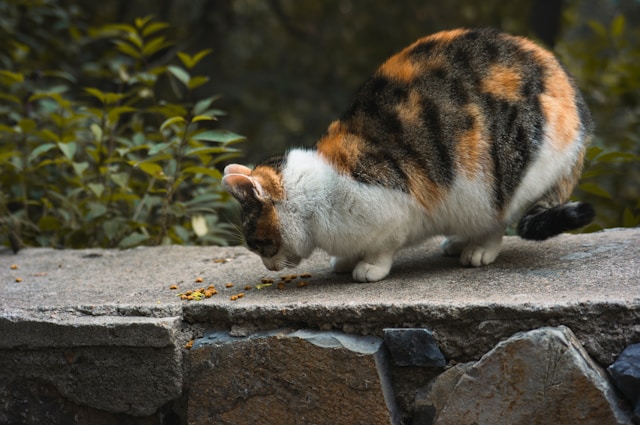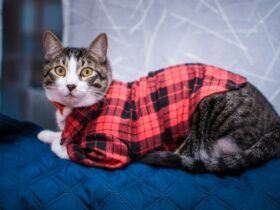Introduction
As cats age, their nutritional needs change, requiring special attention to their diet and treats. Senior cats often face unique health challenges, such as reduced energy levels, dental issues, and kidney disease, which can influence their dietary requirements. Selecting the right food and treats is crucial to ensuring your senior cat maintains optimal health and quality of life. This blog will guide you through the essential considerations for choosing the best food and treats for your senior cat, helping you make informed decisions to support their well-being in their golden years.
Nutritional Needs of Senior Cats
1. Lower Caloric Requirements
- Reduced Energy: Senior cats are generally less active and may require fewer calories to prevent weight gain and obesity.
- Portion Control: Adjust portion sizes and calorie intake to match your cat’s lower energy needs while avoiding overfeeding.
2. High-Quality Protein
- Muscle Maintenance: Older cats need high-quality protein to maintain muscle mass and overall body function. Look for foods with high levels of easily digestible animal proteins.
- Protein Sources: Choose cat foods that list animal-based proteins such as chicken, turkey, or fish as the primary ingredients.
3. Reduced Fat Content
- Balanced Fats: Lower fat content can help manage weight and reduce the risk of obesity. However, essential fatty acids like omega-3 and omega-6 should still be included for overall health.
4. Digestive Health
- Easier Digestion: Senior cats may have reduced digestive efficiency. Look for foods with easily digestible ingredients and added fiber to support healthy digestion.
- Probiotics and Prebiotics: Foods with probiotics and prebiotics can aid in digestive health and maintain a healthy gut flora.
5. Joint and Bone Health
- Joint Support: Supplements like glucosamine and chondroitin can support joint health and mobility, which is important for older cats with arthritis or other joint issues.
- Bone Health: Ensure the food provides balanced levels of calcium and phosphorus to support bone health.
6. Kidney Health
- Reduced Phosphorus: Senior cats are prone to kidney disease, so foods lower in phosphorus and with controlled protein levels can be beneficial.
- Hydration: Wet food can help increase fluid intake, which is beneficial for kidney function.
7. Dental Health
- Dental Care: Senior cats often experience dental issues. Consider foods that are designed to help clean teeth or provide dental treats to support oral health.
Choosing the Best Food for Senior Cats
1. Types of Cat Food
- Dry Food: Convenient and can help with dental health, but ensure it meets the nutritional needs of senior cats and provides adequate hydration.
- Wet Food: Higher moisture content can help with hydration and is often more palatable for senior cats with reduced appetites or dental issues.
- Specialty Diets: Some senior cats may benefit from specialty diets tailored to specific health conditions, such as kidney disease or diabetes.
2. Reading Labels
- Ingredients: Look for high-quality ingredients, including named animal proteins and whole food sources. Avoid foods with excessive fillers, artificial additives, or by-products.
- Nutritional Adequacy: Check that the food is formulated to meet the nutritional levels established by the AAFCO (Association of American Feed Control Officials) for senior cats.
3. Veterinary Recommendations
- Consult Your Vet: Work with your veterinarian to select the best food for your senior cat’s specific health needs and dietary requirements. They can recommend appropriate brands or formulations.
4. Transitioning Foods
- Gradual Changes: When switching to a new food, do so gradually to avoid digestive upset. Mix the new food with the old food over a period of 7-10 days.
Selecting Treats for Senior Cats
1. Healthy Treat Options
- Low-Calorie Treats: Choose treats that are low in calories to prevent weight gain and support a balanced diet.
- Nutrient-Rich: Opt for treats that offer additional nutrients such as omega fatty acids, vitamins, and minerals.
2. Dental Treats
- Dental Health: Treats designed to clean teeth and reduce plaque buildup can benefit senior cats with dental issues.
3. Avoiding Harmful Ingredients
- No Artificial Additives: Avoid treats with artificial colors, flavors, or preservatives. Choose natural treats with wholesome ingredients.
4. Moderation
- Portion Control: Treats should only make up a small portion of your cat’s daily calorie intake. Use treats in moderation to maintain a balanced diet.
Addressing Common Health Issues in Senior Cats
1. Obesity
- Weight Management: Monitor your cat’s weight and adjust food portions accordingly. Avoid overfeeding and ensure a balanced diet to manage weight effectively.
2. Kidney Disease
- Special Diets: Cats with kidney disease may require a special diet with reduced protein and phosphorus. Consult your vet for recommendations.
3. Diabetes
- Controlled Carbohydrates: For diabetic cats, choose food with controlled carbohydrate levels and follow your vet’s guidance on managing diabetes through diet.
4. Arthritis
- Joint Support: Provide food or treats with joint supplements to support mobility and reduce arthritis pain.
Practical Tips for Feeding Your Senior Cat
1. Regular Check-Ups
- Veterinary Visits: Schedule regular check-ups with your vet to monitor your cat’s health and make any necessary dietary adjustments.
2. Monitor Appetite and Weight
- Observe Changes: Keep an eye on changes in appetite, weight, and overall health. Report any significant changes to your veterinarian.
3. Hydration
- Encourage Water Intake: Ensure your cat has access to fresh, clean water at all times. Consider adding wet food to their diet to increase fluid intake.
4. Comfort and Accessibility
- Easy Access: Ensure that your cat’s food and water are easily accessible, especially if they have mobility issues.
Conclusion
Choosing the best food and treats for your senior cat is essential for maintaining their health and quality of life as they age. By understanding their unique nutritional needs and selecting high-quality food and treats, you can support their overall well-being and address common health issues associated with aging. Consult with your veterinarian for personalized recommendations and make dietary adjustments based on your cat’s specific needs. With proper care and attention, you can help ensure that your senior cat enjoys their golden years in comfort and good health.
FAQs
1. How often should I feed my senior cat?
Senior cats typically benefit from being fed 2-3 times a day. Adjust feeding frequency based on your cat’s appetite, health, and your veterinarian’s recommendations.
2. Can I give my senior cat human food as treats?
It’s best to avoid giving human food to your cat, as some foods can be toxic or harmful. Stick to treats specifically formulated for cats and consult your vet for safe options.
3. What should I do if my senior cat has a reduced appetite?
If your senior cat has a reduced appetite, consult your veterinarian to determine the underlying cause and explore options such as more palatable foods or appetite stimulants.
4. Are there specific foods to avoid for senior cats?
Avoid foods with high levels of fillers, artificial additives, and excessive carbohydrates. Also, be cautious with treats and foods that can exacerbate existing health conditions.
5. How can I manage my senior cat’s weight?
Monitor your cat’s weight regularly, adjust food portions as needed, and avoid high-calorie treats. Consult your vet for a tailored weight management plan.
This blog offers comprehensive guidance on choosing the best food and treats for your senior cat, addressing their unique nutritional needs and health considerations to help ensure a happy and healthy life.










Leave a Reply